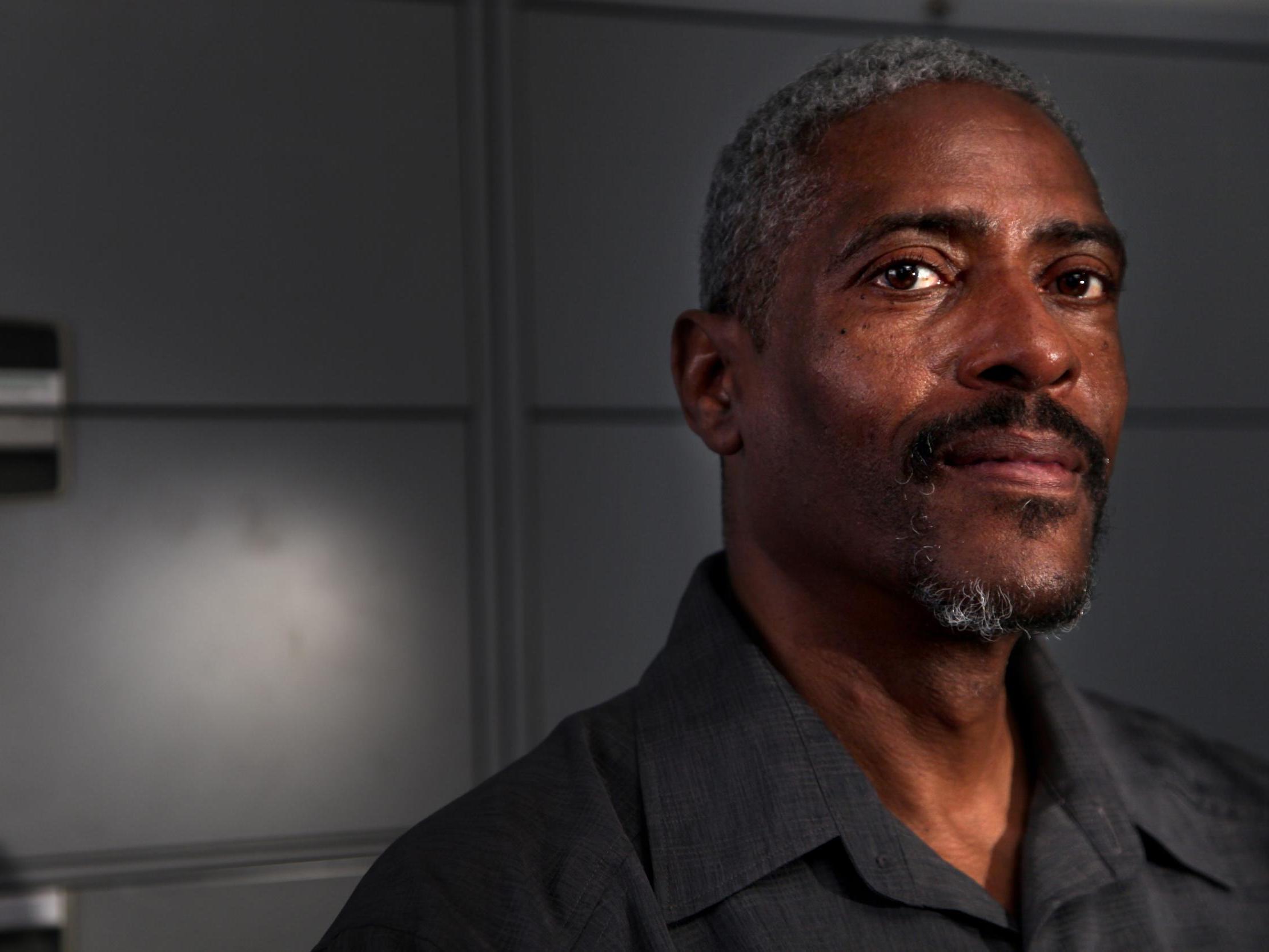Santae Tribble: Man whose wrongful conviction revealed FBI forensic hair match flaws
Tribble was exonerated in 2012 after serving 28 years in prison for the killing of a DC taxi driver

Santae Tribble’s wrongful conviction for a 1978 murder in the District of Columbia exposed decades of exaggerated claims about the reliability of FBI forensic hair matches.
Tribble, 59, died on 24 June in Washington after a lengthy illness attributed to his incarceration, says his son, Santae Tribble Jr.
Tribble was exonerated in 2012 after serving 28 years in prison for the killing of a DC taxi driver, who died when Tribble was 17.
DNA testing revealed that Tribble could not have contributed hairs found in what police said was a stocking mask worn by the attacker and left near the crime scene – even though at trial, the FBI declared the hairs microscopically matched Tribble’s, and prosecutors suggested the odds of a mismatch were “one ... in 10 million”.
Tribble’s case and others uncovered by the DC Public Defender Service and featured in articles in The Washington Post helped trigger a federal review that in 2015 disclosed FBI examiners systematically overstated testimony in almost all trials in which they offered hair evidence against criminal defendants for two decades before 2000.
The findings led the Justice Department to offer new DNA testing in cases with errors and launch a partnership with independent scientists to raise forensic science standards. The findings also led to a review of other forensic disciplines for similar “testimonial overstatement”, though the Trump administration suspended the latter efforts.
Legal experts said Tribble’s case and other wrongful convictions identified by Sandra Levick, the head of the public defender service’s special litigation division at the time, led authorities to abandon blame of rogue FBI examiners or bad apples for systematic human error repeated over decades.
“Santae Tribble was a warm, funny, deeply honourable man who was an unflinching advocate for his innocence,” says Levick, now legal director of the George C Cochran Innocence Project at the University of Mississippi’s law school. “At a terrible personal price, he made a huge difference. His efforts to clear his name ultimately proved that the problems at the FBI lab were not confined to a single analyst; they were systemic.”
The exoneration “freed” Tribble of the burden of knowing he was innocent, the lifetime threat of reimprisonment for minor parole violations and the lurking suspicion of guilt among even supportive relatives, his son says.
“It stopped him from answering to people who he should never have had to answer to,” says Tribble Jr. “These [people] jacked up cases for years. They owned us. They didn’t care. How crazy was it for them to get away with it for so long?”
Tribble Jr grew up sending care packages and wearing new sneakers to trade for his father’s beat-up ones when visiting the former Lorton prison in Virginia. He drove with his uncle to see his father in prisons across the country once DC inmates were moved after 1997, he says.
Every birthday and holiday, his father wrote notes, signed “True love”. He was 21 before they hugged outside prison.
“It’s memories of hoping and praying, wishing and waiting, and counting down the days for him to come home,” the younger Tribble says.
After his father’s “vindication”, he spent most of his time with his son and being a “Pop-Pop” to two grandsons, now ages 23 and 10, Tribble Jr says.
“It’s what I missed out on every day,” and a sign that if his father “was home in the 1980s, he would have done the same thing for me,” he says.
“He had his emotions. But the thing that kept me going when I was younger, he never showed that to me. He never let you see he was dealing with a mountain on his back because he was sitting there for nothing – screaming he was innocent, and nobody was listening.”
The daughter of John McCormick, the slain cabdriver who Tribble was convicted of killing, supported the exoneration.
Court-ordered DNA testing obtained by the public defender service confirmed that none of the 13 hairs retrieved from the crime scene stocking shared Tribble’s genetic profile or that of his alleged accomplice. Rather, the DNA testing found, the hairs came from three other human sources, except for one – which came from a dog – facts that FBI-trained examiners disputed or missed.
Tribble’s “journey of injustice subjected [him] to all the horror, degradation, and threats to personal security and privacy inherent in prison life, each heightened by his youth, actual innocence, and life sentence”, DC superior judge John Mott wrote in 2016.
His wrongful imprisonment deprived Tribble not just of liberty, Mott says, but “it ruined his life, leaving him broken in body and spirit and, quite literally, dying”.
By 2019, medical experts testified, Tribble was expected to die of advanced diseases the court attributed to his incarceration.
Tribble’s brother and son remembered his forbearance and generosity – for “just being able to walk around with his head up and be a man, and take things as they come,” Tribble Jr says.
“These cases let you know, this happens way more than people think it does,” said Tribble’s brother, James Tribble Jr, a civilian Army worker from Woodbridge.
He says he would remember his brother’s joy, before his health declined, at family cookouts and on fishing trips on the Chesapeake Bay, off the Outer Banks in North Carolina and Martha’s Vineyard.
“He’s a better man than I was,” he says. “I couldn’t have done it.”
© The Washington Post
Join our commenting forum
Join thought-provoking conversations, follow other Independent readers and see their replies
Comments
Bookmark popover
Removed from bookmarks